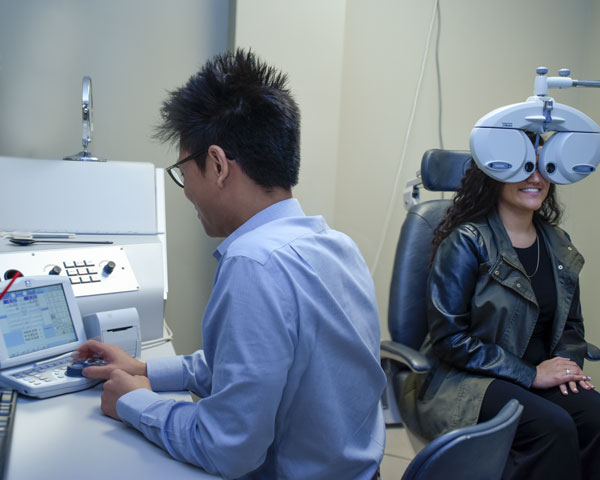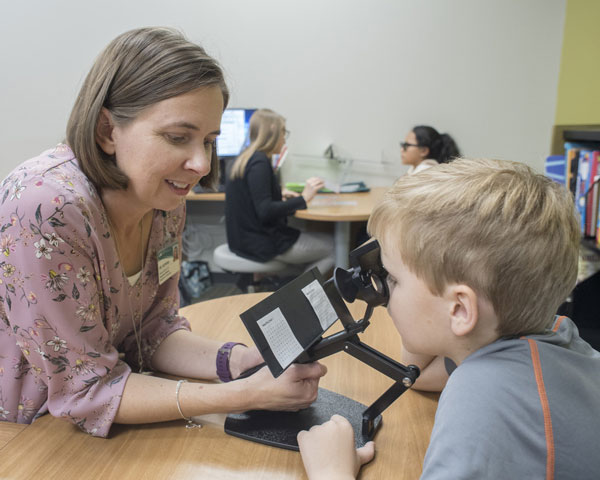Patient-Based Research
By looking at health outcomes, access and social disparities in addition to safety, occupational and environmental vision, researchers are gaining a better understanding of vision science. Clinical trials, studying ocular disease, epidemiology, mobility and ADL and evidence-based practice also fall under patient-based research at the UAB School of Optometry.
Featured Research

Clinical Eye Research Facility
The Clinical Eye Research Facility, CERF, at the UAB School of Optometry conducts innovative research in areas ranging from dry eye disease and contact lenses, to low vision and pediatric eye problems. CERF is always in need of participants for a variety of research studies and is presently seeking subjects 18 years or older to enroll in a database for notification of current and future studies.
Learn more: Clinical Eye Research Facility
Meibomian Gland Dysfunction and Dry Eye Disease
The National Eye Institute, part of the National Institutes of Health, awarded Jason J. Nichols, OD, MPH, PhD, FAAO, a five-year, $1.9 million R01 grant to study potential molecular markers in meibomian gland dysfunction, a type of evaporative dry eye disease. Evaporative dry eye is the most common type of dry eye disease, and meibomian gland dysfunction is the most widespread form of evaporative dry eye. Millions of Americans suffer from MGD, and study findings could lead to a targeted therapy.
In MGD, the quantity or quality of oil the meibomian glands secrete into tears is deficient, causing tears to evaporate too quickly. Nichols’ study is examining both the structure of the tear film and its function in 200 patients split into two groups – those with normal ocular-surface health and those with meibomian gland dysfunction.

Pediatric Vision Research
Vision Therapy for Intermittent Exotropia Study
The UAB School of Optometry is participating in the Vision Therapy for Intermittent Exotropia Study. Intermittent exotropia (IXT) is a condition that causes one eye to drift outward. This study is designed to find out whether vision therapy for IXT improves control of an outward eye turn. We believe vision therapy may help children with IXT, but we do not know for sure and the study is being done to find out. This study is being conducted at multiple sites across the United States and is funded by the American Academy of Optometry and the Marshall B. Ketchum University. About 60 children will take part in the study.
Faculty in Patient-based Research
- Edmund Arthur, OD, PhD, FAAO
- Kristine B. Hopkins, OD, MSPH, FAAO
- Safal Khanal, OD, PhD, FAAO
- Lei Liu, PhD, FAAO
- Jason J. Nichols, OD, MPH, PhD, FAAO
- Kelly K. Nichols, OD, MPH, PhD, FAAO
- Tamara S. Oechslin, OD, PhD, FAAO
- Mark Swanson, OD, MSPH, FAAO
- Candice I. Turner, OD
- Yuchen Wang, PhD
- Katherine K. Weise, OD, MBA, FAAO